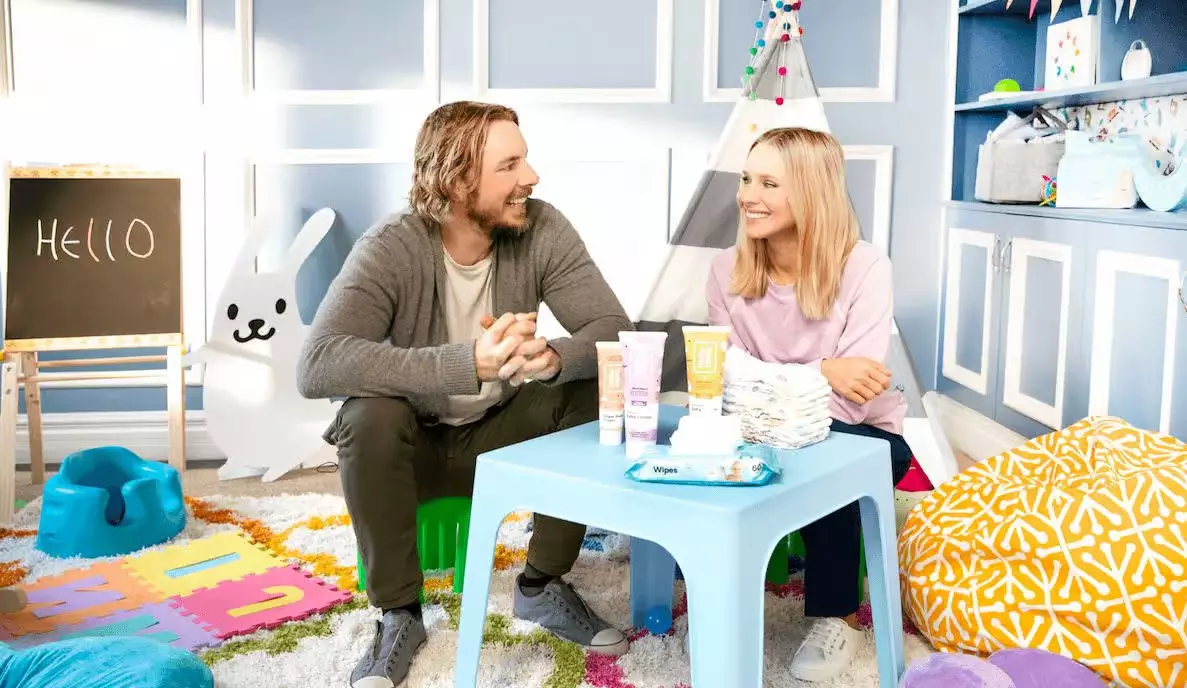In a world where parenting advice floods social media and expert opinions dominate parenting blogs, Kristen Bell’s candid reflections on her experiences with potty training reveal a crucial truth—there’s no single roadmap for raising children. Every child is a unique individual, and the variance in their developmental milestones is not simply a quirk; it’s an integral aspect of childhood. Bell recently shared her insights on an episode of “Momsplaining,” reflecting on her contrasting experiences with her two children, Lincoln and Delta. Through her narrative, she highlights a fundamental parenting lesson: what works for one child may not work for another.
The Potty Training Paradox
Bell’s anecdote about her children’s potty training experiences demonstrates the nuances of child development. While Lincoln transitioned out of diapers by 21 months with relative ease, Delta, at five and a half, still relies on them. The initial joy and confidence she felt as a parent—thinking that potty training was a straightforward task—quickly shifted into a realization that each child requires a tailored approach. This pivot in perspective serves as a stark reminder for parents that milestones such as toilet training can vary greatly between siblings and should be approached with flexibility and understanding.
The expert consensus seems to align with Bell’s familial experience. Research has shown that societal norms and cultural practices heavily influence when children learn to use the toilet. While parents in the United States often expect their children to be fully trained by age three, other cultures emphasize earlier training, sometimes even before a child’s first birthday. Such differences underscore the importance of recognizing that patterns of child-rearing are not universal but reflect a complex interplay of cultural, social, and personal factors.
Challenging Conventional Wisdom
Bell’s candid remarks challenge a prevailing myth within parenting communities—that there is a “right” way to achieve milestones. Taking into account Professor Alma Gottlieb’s insights, who emphasizes that many children do not follow the same progression, we must re-evaluate our rigid expectations. The one-size-fits-all model of parenting is outdated and limiting. After all, there’s no universal manual for child development, and believing in such a notion can lead to unnecessary pressure and frustration for both parents and children.
Further complicating matters, Dr. Laura Markham notes that children at Delta’s age tend to be engrossed in their activities, which can distract them from basic bodily cues. As parents, it is crucial to encourage children gently, rather than enforce harsh standards. This advice resonates firmly with Bell’s revelations; moms and dads should prioritize understanding their children’s unique journeys rather than imposing rigid timelines based on previous experiences.
Creating a Supportive Environment
For parents facing similar potty training challenges, the key takeaway is not to equate a sibling’s readiness or progress with one’s child. The focus should be on fostering a nurturing environment for every child’s individual needs. Scheduled bathroom times for younger children, as advocated by Dr. Markham, can alleviate some of the stresses associated with potty training. Simple reminders and encouragement can make a world of difference, steering clear of punitive measures that could instill shame or anxiety around a natural process.
Ultimately, Bell’s reflections illuminate a broader truth about parenting: the need for compassion and adaptability. Each child is different, and recognizing this truth allows parents to celebrate their children’s milestones—however varied they may be. The journey of parenting is not one of uniformity, but rather a mosaic, where every piece, whether it’s a quick transition to the toilet or a slower, more patient approach, contributes to the beauty of family life.
Cultivating Acceptance in Parenting
Bell’s story serves as a reminder for us to cultivate acceptance in our parenting journeys as well. Recognizing that parenting styles may need to continuously evolve is crucial. Embracing the idea that children learn and grow at their own pace can mitigate anxiety for parents, allowing them to focus on the joys of their child’s progression rather than comparisons or perceived failures.
By fostering a supportive and individualized approach, parents can inspire children to forge their own paths toward independence—whether in potty training or any other aspects of life. In doing so, they not only help their children navigate childhood challenges but also nurture a lifelong belief in their ability to adapt and thrive in an ever-changing world.

